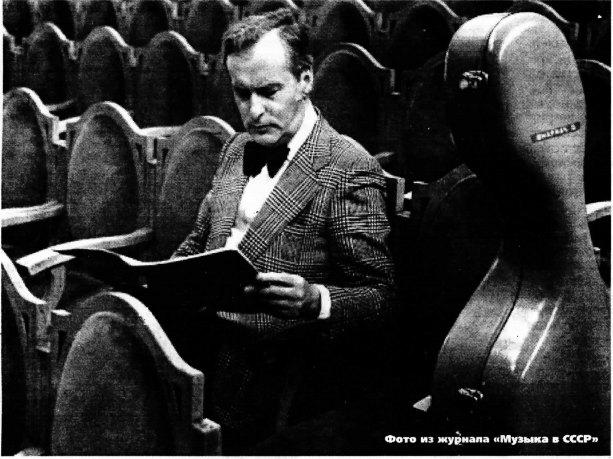Remembering a Master
Published in: 07. Between Heavenly and EarthlyThe whole life of Daniil Borisovich Shafran, the great cellist, a true knight of the cello, was connected with our city, St. Petersburg. He was practically the only representative of the Leningrad school to receive wide international fame.
Here, on the Neva’s banks, he was born on January 13, 1923. His first teacher was his father, cellist Boris Semenovich Shafran. Daniil Borisovich graduated from the Leningrad Conservatory with a cello class from Professor A.Ya. Shtrimer.
The talent of Daniel Shafran won recognition early. Already in 1937, he won first place at the All-Union Competition for Violinists and Cellists in Moscow. Then followed first prizes at competitions in Budapest and Prague.
His communication with our city did not end even after he moved to Moscow. He regularly appeared on the concert stages of the Great and Small Philharmonic Halls, and often performed with philharmonic orchestras. Here he presented all his new programs. Each encounter with his cello proved unforgettable.
My colleagues, cellists and music lovers, remember well the special atmosphere prevailing at these concerts. The amazing, inherent only to Shafran’s sound, romantic elation, spirituality, originality and unexpectedness of interpretations — this is far from a complete list of distinguishing features of his art. It is also essential to note his phenomenal devotion to the instrument – despite already possessing filigree technique, he never stopped improving his skill, giving all his time to his cello.
An inimitable master of miniatures, in this he knew no equal, which did not stop him from paying great attention to large forms as well. Many authors dedicated their works to him. For example, D. Kabalevsky dedicated his second cello concerto to Shafran.
D.B. Shafran toured extensively around the world. He repeatedly served as a jury representative at the International Tchaikovsky Competition.
An extensive musical archive — recordings either released on albums or maintained by the All-Union Radio foundation — gives us an opportunity not to part with his work.
A fantastic devotion to the cello, a daily, relentless search — this was Shafran’s entire life, which is an example worthy of respect and imitation.
Daniel Shafran died in his seventy-fifth year of life. For the art of the cello, this is a great bereavement. Time moves relentlessly, years pass, generations change. The memory of the great master should live, and his work should remain a spring from which young generations of musicians can draw wisdom and inspiration.

Daniil Shafran. Photo from the magazine Music in the USSR.

Speak Your Mind